Sunderland v Newcastle: The 'race' to return the election result
- Published
Sunderland and Newcastle rivalry to get election results out quickly
The sight of sprinting students carrying ballot boxes into North East counting centres has become a feature of election night coverage. But are Sunderland and Newcastle really engaged in a race to be first with the results?
As soon as the polls close across the country at 22:00 GMT on 12 December, ballot boxes will be whisked to leisure centres and community halls for the often long and painstaking counting process.
But in north-east England the counting is usually much, much quicker.
Sunderland has traditionally been the quickest to reveal the first result of the night - usually within an hour of voting ending. From 1992 until 2015 the first election result was announced there.
But in 2017 there were gasps, external when it emerged near neighbours Newcastle had beaten them by a clear nine minutes.
The two cities have long been rivals, especially on the football pitch. But does this extend to election counting too?
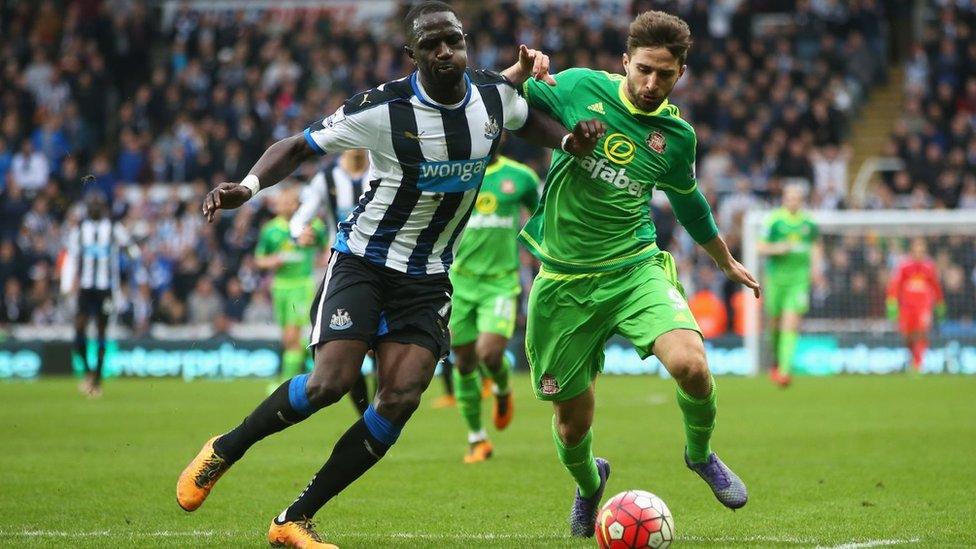
The Tyne-Wear derbies are fiercely contested
Despite the obvious vigour with which the cities' youngsters hurry to deliver ballot boxes to the counts, both city councils are adamant there is no race, no competition, no conscious effort to be first.
"Our priority is to carry out the elections as efficiently and smoothly as possible," a Newcastle City Council spokesman says.
"As usual, Sunderland will be looking to run an accurate and efficient count that the electorate and candidates can all have confidence in," Sunderland's acting returning officer Patrick Melia says.
"It isn't about declaring first, it is about delivering an efficient and organised count," Mr Melia adds, saying Sunderland focuses on "meticulous planning" and having an "extremely well organised" team.

MANIFESTO GUIDE: Who should I vote for?, external
POSTCODE SEARCH: Find your local candidates, external

It certainly appears to have worked for at least two decades.
The city's record of success began in 1992 after it brought in bank tellers to lead the counting and employed energetic teenagers to run the boxes from vehicles into the Silksworth Tennis Centre.
Newcastle's recent victory occurred after it moved its counting operation from the council's Civic Centre to the larger hall at Northumbria University's Sport Central, which allows cars to deliver ballot boxes straight to the back door.
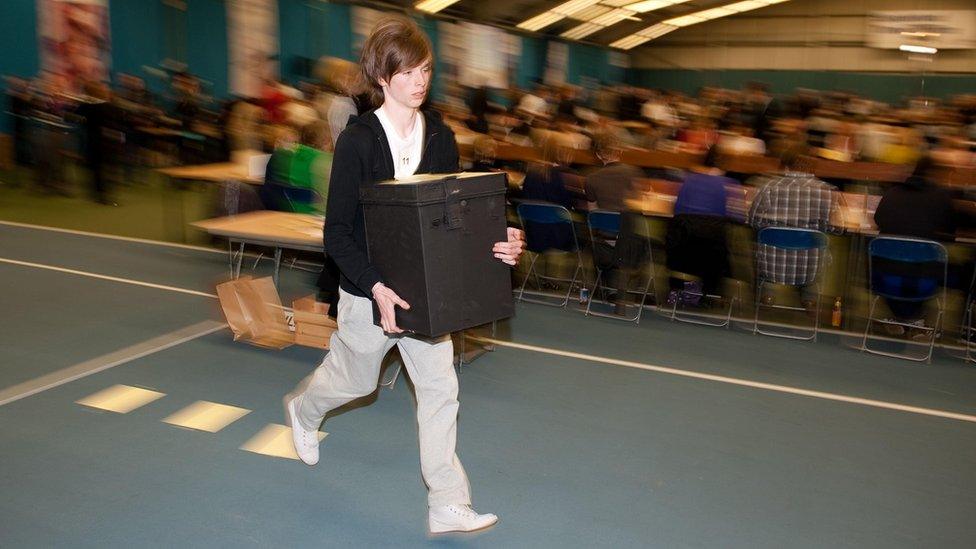
Both Sunderland and Newcastle have teams of energetic teenagers to run ballot boxes into the counting centres
June Parkinson, a retired civil servant, has been a "reasonably fast" counter for Newcastle for the past decade.
"I'm sure some people do want to be the first and while that is nice it's not the be all and end all," she says.
"You are certainly never told you have to be quicker. It's all your own pace."
Apart from keeping an eye out for ballot papers that have been spoiled, often with a few choice "Anglo-Saxon expletives", the job is about efficiency and speed.
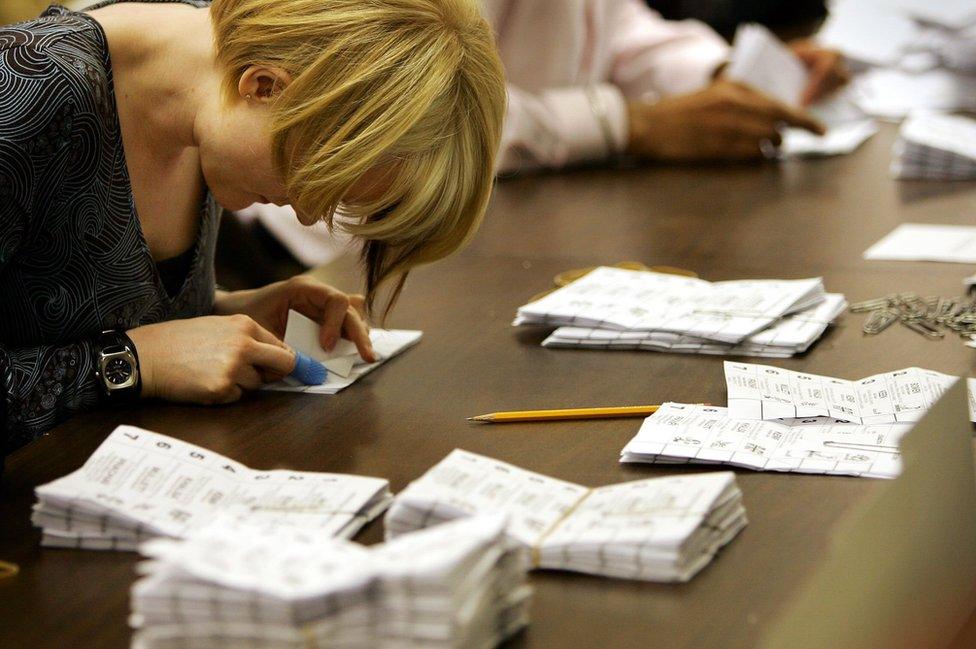
The number of papers in each box is counted first before they are separated into candidate piles
"It is a bit of a buzz," she adds. "You are playing a tiny but important part in the democratic process and history of the city.
"I do not feel any pressure, it's just common sense," she says, adding: "It's not rocket science. We are all mature adults that do it and can all count."
So if inter-city rivalry is not driving both cities speedy counting, what is?
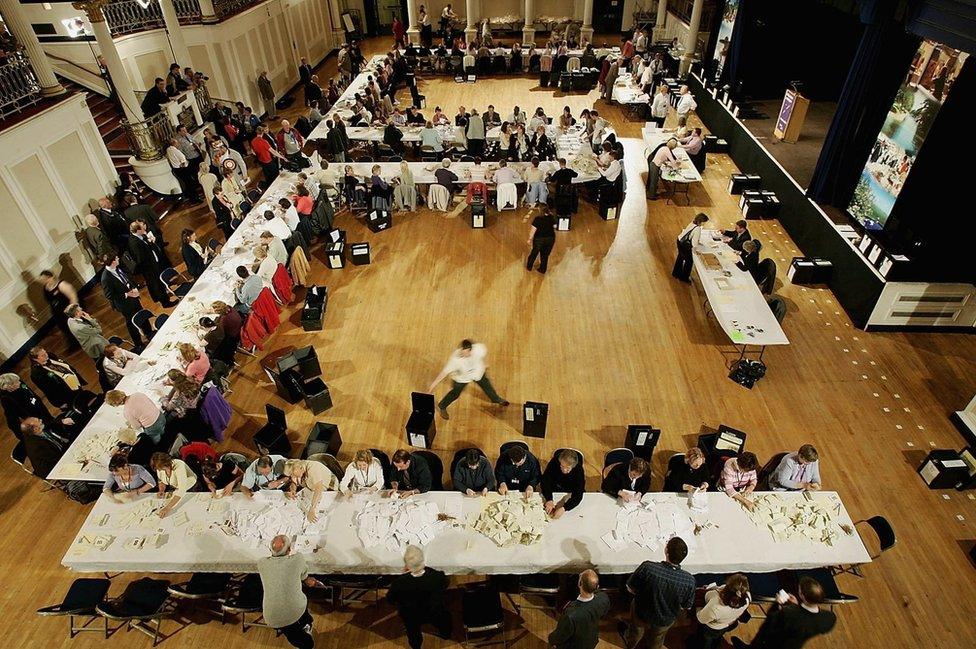
Counts will be held around the country
Low turnouts are not the answer. Newcastle's in 2017 was the same as the national average of 69%, while Sunderland's was 61% - both significantly higher than the lowest turnout in the country, 53% in Glasgow North East.
One factor is the rarity of recounts, however. The three constituencies in both cities typically return a winner with a healthy majority.
According to Newcastle City Council another incentive for an early result is allowing counters to get home at a reasonable hour.
Avoiding late counts also helps limit mistakes made due to tiredness.
The council also points to its many city centre polling stations being sited close to the count venue.
Whatever the reasons, many eyes will be on the northern neighbours when the polls close on Thursday.
- Published18 November 2019
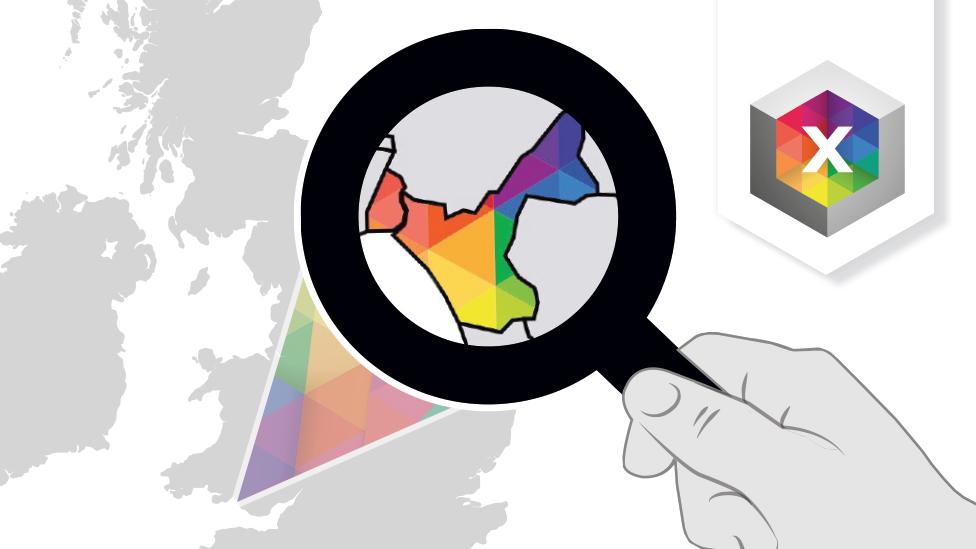
- Published11 December 2019
